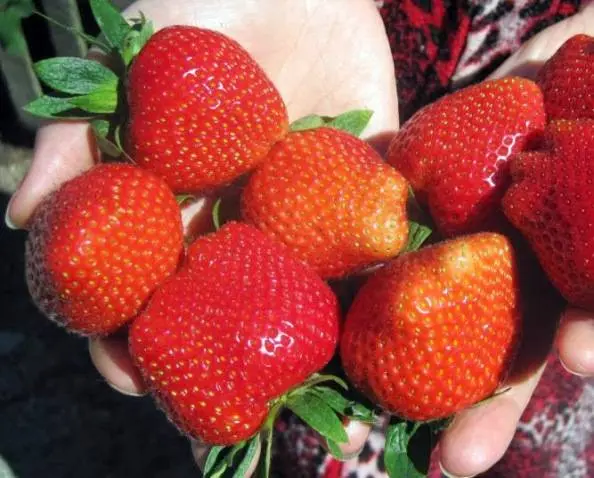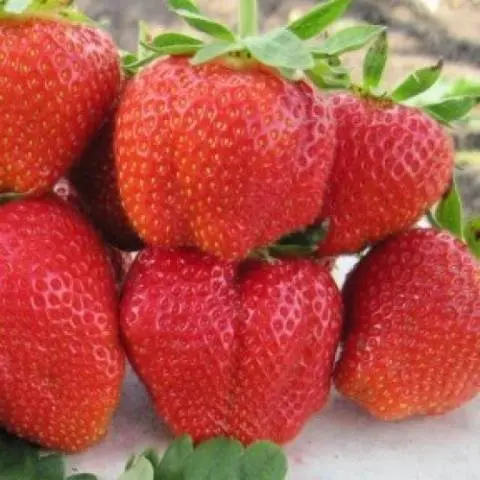Contents
How do you usually pick strawberries? Probably, individual berries, sending them immediately into the mouth, or handfuls, cups, occasionally, small buckets or saucepans. But there are varieties that differ in such sizes and yields that they can be quite easily collected in boxes and barrels. For example, according to the originator, picking Darselect strawberries, you can collect up to 25 kg of berries in one hour of work. Just imagine such a huge number of berries – truly this variety of garden strawberries, justifying its name, seems even to a sophisticated gardener a real gift from breeders.
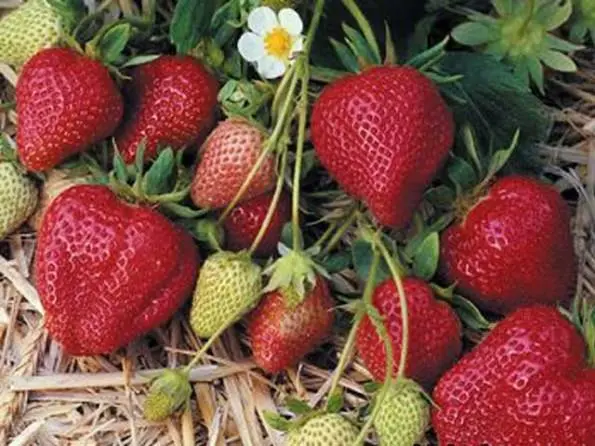
But not everything is as simple as it seems at first glance. To achieve such productivity and productivity, you need to work hard. However, for gardeners who have been growing strawberries for more than a year, this fact is not at all news. Strawberries are a berry that requires vigilant care and considerable effort, but how pleasant it is to enjoy the delicious and fragrant fruits of your labors after harvesting.
History of occurrence
Strawberry Darselect comes from France. In 1998, Societe Civile Darbonne breeding scientists crossed the two leading European strawberry varieties Elsanta and Parker. As a result, the Darselect strawberry variety was obtained, according to the description, photo and reviews of which it can be said that it not only inherited the advantages of the parent couple, but also acquired its unique characteristics, such as a bright aroma and an impressive size.
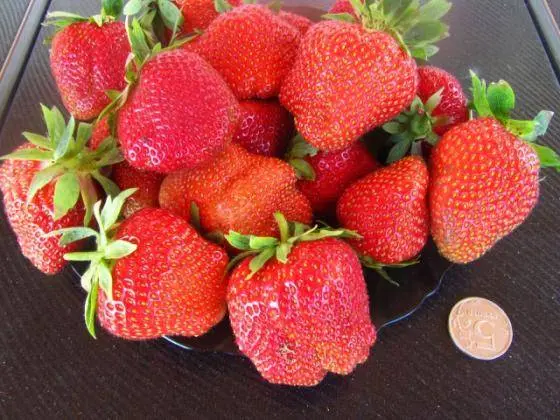
In less than 20 years that have passed since its inception, Darselect strawberry has managed to gain respect and popularity throughout Europe and is one of the main varieties of strawberries grown in France on an industrial basis.
Variety description
It should be noted right away that the Darselect variety belongs to the most common group of short daylight strawberries. That is, her fruiting occurs once a season, and fruit buds can successfully form only under daylight conditions that do not exceed 12 hours. Usually this process occurs at the very end of summer – early autumn, when the air becomes cooler and more humid.
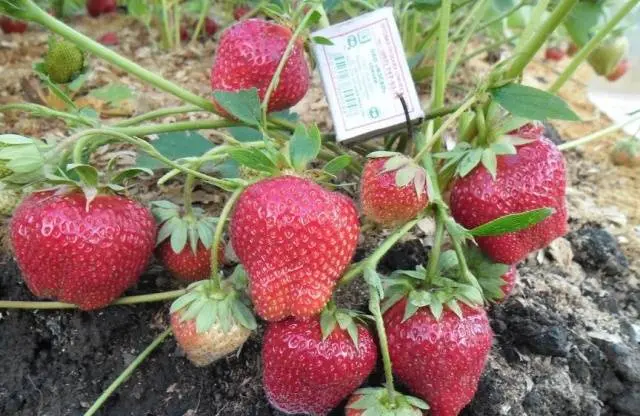
Strawberry Darselect has a fairly powerful root system. The bushes themselves are large and tall, the leaves are dark green in color with virtually no hairs. Despite powerful bushes and roots, it does not do well without water. To get a really good harvest with a large size of berries, watering should be plentiful and regular. With a sufficient level of watering, it copes well even with 40 degree heat. Does not fade or fall out from extreme heat.
Strawberries Darselect in terms of ripening can be attributed to early varieties, since its berries ripen around mid-June. This variety has one of the shortest time intervals between flowering bushes and ripening berries. It only lasts about a month. Accordingly, flowering usually occurs in the middle – in the second half of May, when night frosts are still possible in many regions of Our Country.
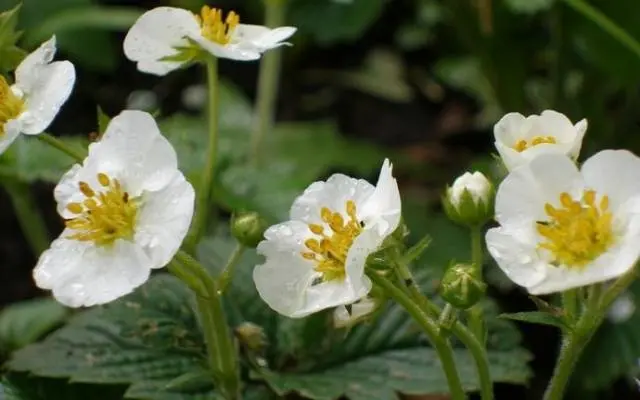
This can adversely affect both the flowers and the subsequent harvest, therefore, in these cases, it is necessary to provide for the protection of flowering strawberry bushes using non-woven materials on the arcs.
It is possible to collect a ripening berry from the bushes within 10-15 days, starting from the 10th of June. In terms of fruiting, Darselect is several days ahead of its parent variety, Elsanta.
As already mentioned, in terms of harvesting speed, the Darselect strawberry variety occupies a leading position, mainly due to the large size of the berries and the soft stem. The yield of strawberries for short-day varieties also remains high – about 800 grams of berries can be harvested from one bush, even with an average level of care. Subject to good agricultural practices, the yield can be 1 kg of berries per bush and even more.
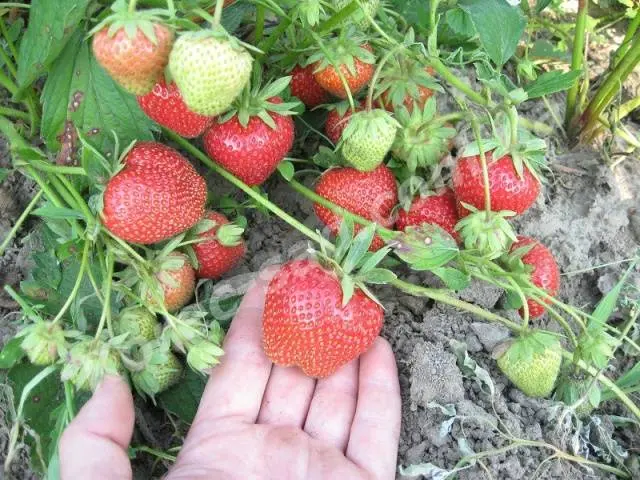
The sensitivity of Darselect strawberries to major diseases is at the level of the main European varieties. It is quite resistant to verticillosis, although it is susceptible to brown spot and oidium.
As for winter hardiness, since the Darselect variety was zoned for the conditions of France, without shelter it can only withstand frosts down to -16 ° C. Thus, in most regions where there is no permanent snow cover in winter, it must be covered with straw, leaves, spruce branches or non-woven material.
Characteristics of berries
As you know, the most important thing in strawberries are berries. And in this regard, it’s even hard to believe that Darselect strawberries are usually classified as commercial varieties – its berries are so tasty and fragrant.
- Strawberry variety Darselect can be safely attributed to large-fruited. Indeed, with an average weight of one berry of 20-30 grams, quite often there are specimens weighing up to 50 grams. Moreover, both the mass of individual berries and the yield value directly depend on the frequency and regularity of feeding.

- The shape of the berries during the season can change from conical-oval to round, heart-shaped at the end of fruiting. In some cases, at the end of the season, strangely shaped berries with a combed surface may appear. These deformations may be due to low temperatures or high humidity during the flowering period, which can cause poor pollination.
- The color of Darselect strawberries is red with an orange tint. When fully ripe, the skin may shine.
- The flesh has a lighter red hue. It is dense, elastic, without wateriness. Although not “crunchy” like some modern commercial varieties like Albion.
- After picking, the berries are well stored, do not darken and do not flow. They tolerate transportation well even over long distances.

- Well, the taste of Darselect strawberries is distinguished by sophistication and versatility. It has enough sugar, but at the same time there is a barely perceptible sourness. According to tasters, it pulls 5 points on a five-point scale. Berries are also characterized by the unique aroma of real wild strawberries.
Peculiarities of growing
Since Darselect strawberry bushes are distinguished by their enviable power, it makes no sense to plant them on 1 sq. meter more than four bushes. Between seedlings, it is desirable to withstand 35-40 cm, while the row spacing can reach up to 90 cm.
The main feature of the Darselect variety can be considered its great need for moisture. If there is not enough moisture, the seedlings will simply die. In dry conditions, the formation of cavities inside the berries is possible. In hot regions, it makes sense to grow Darselect strawberries only on drip irrigation, especially on industrial-type plantations.
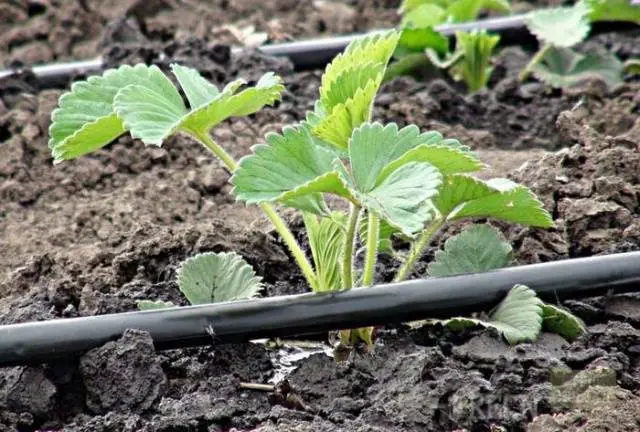
Heat withstands well, subject to abundant watering, but the ripening period can stretch for another week.
In the southern regions, it is possible to use a shading net or plant bushes in partial shade.
Yields may not be very high in the first year of planting until a full root system develops.
Instead, regular foliar feeding and abundant watering can be used.
Strawberry Darselect does not like carbonate soils, because of this, chlorosis may occur on the leaves. But this strawberry variety responds very well to top dressing and you can restore the color of the leaves after just a few sprays.
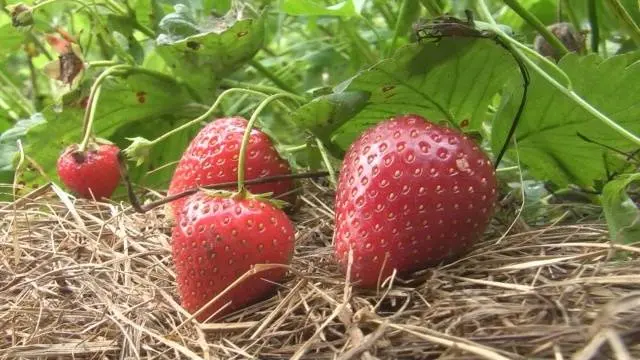
After the 3rd year of cultivation, the yield will decrease, so it is recommended to replace the plantations in the 4th-5th year of growth. But for farmers, it is quite realistic to leave it for the second or third year without losing shape, size and yield.
Reviews of gardeners and summer residents
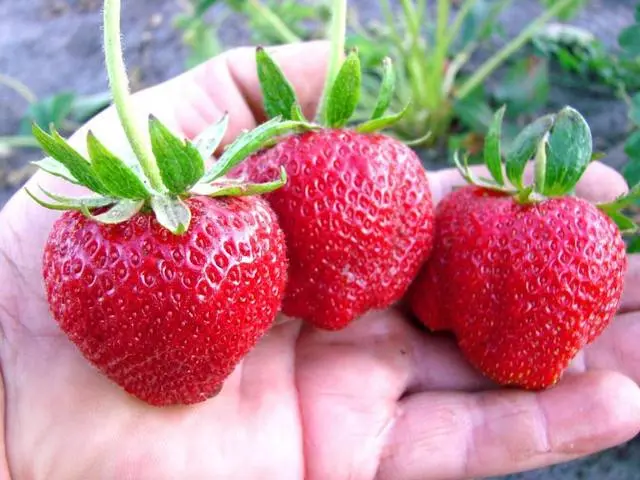
It is quite understandable that a commercial strawberry variety can receive positive feedback from farmers, but it is surprising that ordinary summer residents and gardeners are also happy to grow Darselect strawberries in their home gardens.
Conclusion
Despite some difficulties in growing strawberries, Darselect amazes not only sophisticated farmers, but also delights ordinary gardeners. Indeed, not every industrial variety can boast of a real dessert taste and tempting aroma of homemade strawberries.










